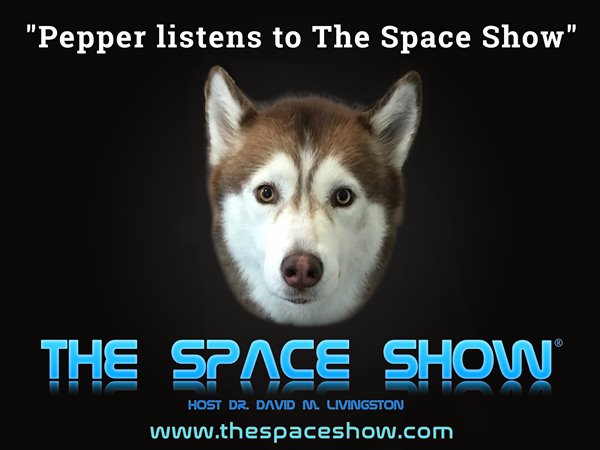Guest: Dr. Harold Rosen. Topics: SYNCOM Geostationary Satellite history. You are invited to comment, ask questions, and discuss the Space Show program/guest(s) on the Space Show blog, http://thespaceshow.wordpress.com. Comments, questions, and any discussion must be relevant and applicable to Space Show programming. Transcripts of Space Show programs are not permitted without prior written consent from The Space Show (even if for personal use) & are a violation of the Space Show copyright. We welcomed Dr. Harold Rosen to the program to discuss the world's first geostationary communication satellite which he created, SYNCOM. Dr. Rosen has given me permission to upload to The Space Show blog Chapter 2 from Success Stories In Satellite Systems which is an AIAA book published in 2008. Chapter 2 is titled "SYNCOM: World's First Geostationary Satellite." This is Dr. Rosen's own story of SYNCOM from idea conception to success as he is recognized as the father of the geostationary satellite. Dr. Rosen started our discussion by going back in time to the conditions and the political situation of the time. Sputnik was orbiting Earth and the advanced radar unit Dr. Rosen was working on was suddenly cancelled when it was discovered that the Soviet Union was replacing its bombers with ICBMs. Dr. Rosen's department at Hughes was now challenged to find new and appropriate technologies building upon the radar technology as it was important to keep the team employed. One project suggested was the design and development of a communications satellite system as existing communications were problematic at best, expensive, and transoceanic television was impossible. Dr. Rosen tells us how he expanded the idea, put together an amazing team to develop the concept, and how his team had to struggle and fight for sponsors, funding, and backing. One of the issues we talked about was the spin configuration and thruster development. Dr. Rosen talked about the rocket limitations at the time and how they planned on using a Scout sounding rocket. As it turned out, the Delta was being worked on and when the satellites were ready for launch, a Delta was used. In fact, once they knew that the launch would be on a Delta, they did some redesign of their satellite to add in more redundancy given the Delta could handle significantly more mass than a Scout. Dr. Rosen talked about many of the challenges including the need to have a light weight traveling wave tube amplifier. We also talked about the competing LEO comsat programs proposed at the time and Dr. Rosen had some interesting things to say about these types of systems, especially for today with modern technology. I asked Dr. Rosen why the early SYNCOM system had a five year life. Don't miss his explanation for this. A listener asked him to compare the early geo satellites to a Direct TV satellite of today. Again, you will find the comparison most interesting. This is an important part of our space history and Dr. Rosen with the team he assembled made it happen, from idea to reality. Our communications and world were forever changed because of his success. Please post your comments/questions on The Space Show blog. I will be sure to let Dr. Rosen know about blog comments.
Broadcast 1774 (Special Edition)
<none>
WARNING: Using Disqus Comments on the Space Show:
To ensure your comments do NOT get caught in the Disqus automatic spam filter system, please login to your Disqus account or create a verified/approved Disqus account.
Posting multiple URL links WILL TRIGGER the Disqus automatic spam filter system.
<none>

Support the Space Show ®
If you prefer donating with a check, please make the check payable to One Giant Leap Foundation. Mail it to One Giant Leap Foundation, 11035 Lavender Hill Drive Ste. 160-306 Las Vegas ,NV 89135
Follow us on Facebook
Broadcast Schedule
Sunday: 12:00 - 1:30 PM (PT)
Monday: 2:00 - 3:30 PM (PT)
Tuesday: 7:00 - 8:30 PM (PT)
Friday: 9:30 - 11:00 AM (PT)
Other weekday times can be morning , afternoon, or evening as you will see from the program schedule below. When you see Wednesday or Thursday program options, it is because of my travel schedule and I am adding in special shows at the time chosen by the guest. The John Batchelor Hotel Mars segment is always Wednesday, 6:30-6:45 PM Pacific Time. All Hotel Mars shows are archived as Space Show programs.
Dr. Livingston Business Consulting & Speaking Opportunities
Dr. David Livingston is available for business consulting and speaking engagements. Please contact him for specifics. You can reach Dr. Livingston by email at drspace@thespaceshow.com or (415) 455-9076.
<none>
© Copyright 2017 Dr. David M Livingston & One Giant Leap Foundation All rights reserved. No part of Space Show audio and video programs may be reproduced, distributed, or transmitted in any form or by any means, including but not limited to photocopying, recording, edits, transcripts, website uploads, including YouTube or other electronic or mechanical methods, except in the case of brief quotations embodied in critical reviews and certain other noncommercial uses permitted by Fair Use under 17 U.S.C. § 107, without the prior written permission of One Giant Leap Foundation. For permission requests, write to Dr. David M. Livingston, The Space Show, 11035 Lavender Hill Drive, Ste. 160-306, Las Vegas, NV 89135 USA.
About TSS
The Space Show® wants to provide you with timely and relevant information on space issues and policy influencing the development of outer-space commerce, space tourism, exploration, planetary science, as well as other related space subjects of interest to us all.
Contact Us
The Space Show
C/O Dr. David Livingston
11035 Lavender Hill Drive
Ste. 160-306
Las Vegas, NV 89135
OFFICE TEL: 1-702-268-8743
LIVE SHOW TOLL FREE: 1-866-687-7223
EMAIL: drspace@thespaceshow.com
<none>







 The Space Show
The Space Show



